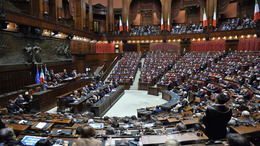Austrian journalist and renowned Hungary expert Paul Lendvai calls Viktor Orbán Europe's "new strongman" – and his tone is highly critical. The Hungarian prime minister stands for a departure from the core values of liberal democracy: a pluralistic media landscape, an independent judiciary and respect for diversity in civil society.
In some – although not all – respects, Hungary's development is similar to that of Poland under the Law and Justice (PiS) party. Under Orbán's Fidesz party, Hungary has moved to the furthest edge of what is considered democratic in the European Union – democratic in the sense of 1993's Copenhagen Criteria, the requirements that countries must meet to become members of the European Union. These include things like democratic order and the rule of law, and protection of human rights and minorities.
The latest Sustainable Governance Indicators (SGI) analysis published by the Bertelsmann Stiftung shows that Hungary's quality of democracy has been declining for years. The country currently ranks 40th among the 41 countries in the European Union and OECD.
The main reasons for this are a media landscape that is becoming less and less pluralistic, election processes that are designed to weaken the opposition, bullying of independent NGOs and discrimination of minorities. As the SGI sums it up, the Orbán government "continues to undermine democracy."




![[Translate to English:] Andrej Babis](/fileadmin/files/_processed_/2/b/csm_399707067EA7A8339_da8d3d91d2.jpg)


